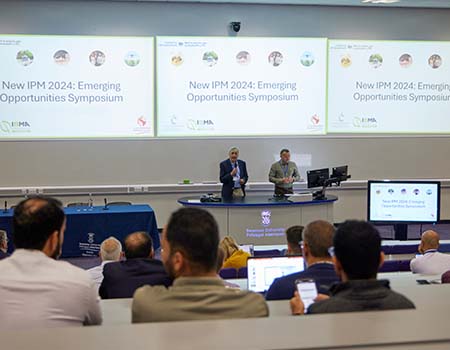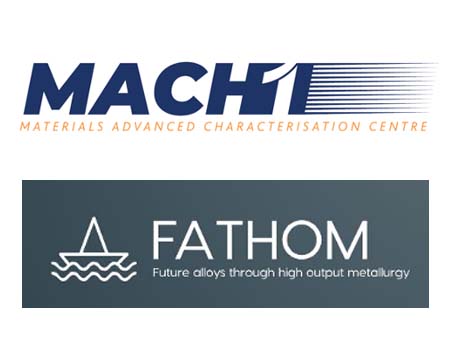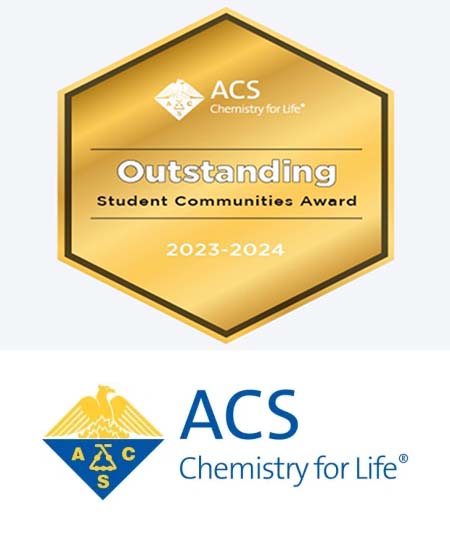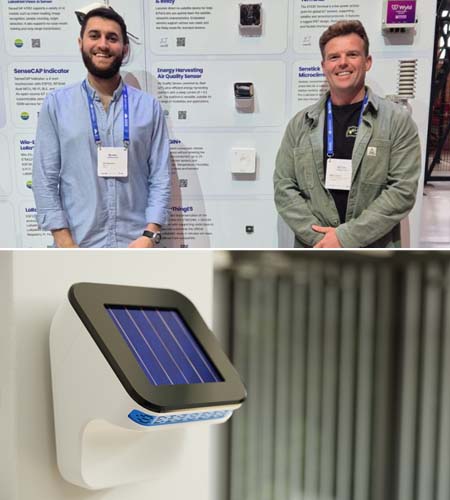|
 |
 |
 |
Study reveals 60% increase in global CO2 emissions from forest fires
A major new study co-authored by Professor Stefan Doerr, Director of the Centre for Wildfire Research, at Swansea University reveals that carbon dioxide (CO2) emissions from forest fires have surged by 60 per cent globally since 2001, and almost tripled in some parts of the northern boreal forests.
The study, led by Dr Matthew Jones, previously a research officer at Swansea now at the Tyndall Centre for Climate Change Research of the University of East Anglia, (UEA) has been published in Science.
Dr Matthew Jones said: “Our findings underscore the urgency for policymakers and environmental agencies to prioritize climate mitigation and proactive forest management strategies to protect these critical ecosystems from the accelerating threat of wildfires.”
|
 |
 |
|
 |
 |
 |
|
 |
|
 |
 |
|
 |
 |
 |
Swansea Chemistry achieves ACS Student Communities Award
Congratulations to the Department of Chemistry's Student ChemSoc for achieving ‘Outstanding ACS Student Communities Award’ for the 2023-2024 academic year! The chapter submitted their annual report and received special recognition on the basis of their programs and activities.
Swansea Chemistry ChemSoc is the only group in the UK affiliated with the American Chemical Society (ACS) which has previously paid for students to travel to the US for leadership courses and conferences.
The report feedback from reviewers stated: "Your chapter has certainly solidified its presence in the chemistry community, and you have many good programs in place to continue being successful. You have good connections with your university, your students, and your community, as well as a solid mission that is in alignment with the ACS Core Values.”
The Chemistry undergraduate programme is also the only one in the UK that is recognized by the ACS as one that aligns with their international guidelines.
|
 |
 |
|
 |
 |
 |
 |
 |
Student develops energy harvesting prototype
PhD student Zaid Haymoor, Electronic Engineering, has developed a prototype as part of the EPSRC ATiP project (Application Targeted and Integrated Photovoltaics) for an Energy Harvesting Air Quality Monitor, "Air-sense-IQ”.
Powered by Epishine’s flexible and highly efficient organic printed solar cells, AIR-sense-IQ has been developed in conjunction with the Centre for Integrative Semiconductor Materials at Swansea
University. The device is intended for use within working environments such as offices where high levels of CO2 can lead to poor decision making, slower reaction times, and increased tiredness among employees.
The casing was developed using IAA funds won by Dr Greg Burwell, Department of Physics for which it won a European product design award with Zaid’s supervisor being Professor Matt Carnie from Materials Engineering.
|
 |
 |
|
 |
|